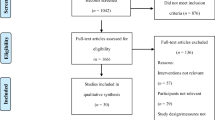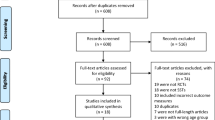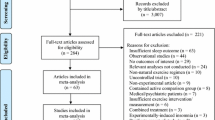Abstract
Purpose
Musical training has been found to promote psychological well-being and quality of life among pediatric brain tumor survivors. Yet, the essential elements of musical training that influence its efficacy remain unknown. This study aimed to examine the lived experience of engaging in the musical training program from the perspectives of pediatric brain tumor survivors, their parents, and interveners.
Methods
We employed a descriptive phenomenological approach. Twenty pediatric brain tumor survivors (aged 8–15 years) who had undergone musical training in a previous trial were selected, along with their parents (13 mothers and 7 fathers) and 7 interveners, to participate in individual semi-structured interviews. Data analysis was conducted according to Colaizzi’s descriptive phenomenology method.
Results
Five main themes emerged from the interviews: overcoming difficulties encountered during the initial phase of the musical training program, improved psychological and emotional well-being, facilitation of participation in musical training program, appreciation of the benefits of joining the musical training program, and expectation of future musical training program. The musical training program improved the psychological and emotional well-being of pediatric brain tumor survivors by promoting positive mood, facilitating emotional management and expression, and enhancing self-confidence. In addition, learning in a supportive environment is crucial in facilitating survivors to overcome adversity during their learning process.
Conclusion
This study addressed a literature gap by exploring how a musical training program promoted psychological well-being among pediatric brain tumor survivors. The study findings inform the importance of tailoring musical training program based on survivors’ learning abilities and needs.
Similar content being viewed by others
References
Udaka Y, Packer R (2018) Pediatric brain tumors. Neurol Clin 36:533–556. https://doi.org/10.1016/j.ncl.2018.04.009
National Cancer Institute (2015) SEER Cancer Statistics Review, 1975–2015. https://seer.cancer.gov/csr/1975_2015/. Accessed 1 November 2019
Geenen MM, Cardous-Ubbink MC, Kremer LC, van den Bos C, van der Pal HJ, Heinen RC, Jaspers MW, Koning CC, Oldenburger F, Langeveld NE, Hart AA, Bakker PJ, Caron HN, van Leeuwen FE (2007) Medical assessment of adverse health outcomes in long-term survivors of childhood cancer. JAMA 297:2705–2715. https://doi.org/10.1001/jama.297.24.2705
Ness KK, Mertens AC, Hudson MM, Wall MM, Leisenring WM, Oeffinger KC, Sklar CA, Robison LL, Gurney JG (2005) Limitations on physical performance and daily activities among long-term survivors of childhood cancer. Ann Intern Med 143:639–647. https://doi.org/10.7326/0003-4819-143-9-200511010-00007
Oeffinger KC, Mertens AC, Sklar CA, Kawashima T, Hudson MM, Meadows AT, Friedman DL, Marina N, Hobbie W, Kadan-Lottick NS, Schwartz CL, Leisenring W, Robison LL (2006) Chronic health conditions in adult survivors of childhood cancer. N Engl J Med 355:1572–1582. https://doi.org/10.1056/NEJMsa060185
De Ruiter MA, Van Mourik R, Schouten-Van Meeteren AY, Grootenhuis MA, Oosterlaan J (2013) Neurocognitive consequences of a paediatric brain tumour and its treatment: a meta-analysis. Dev Med Child Neurol 55:408–417. https://doi.org/10.1111/dmcn.12020
Turner CD, Chordas CA, Liptak CC, Rey-Casserly C, Delaney BL, Ullrich NJ, Goumnerova LC, Scott RM, Begley HC, Fletcher WJ, Yao X, Chi S, Kieran MW (2009) Medical, psychological, cognitive and educational late-effects in paediatric low-grade glioma survivors treated with surgery only. Paediatr Blood Cancer 53:417–423. https://doi.org/10.1002/pbc.22081
Ho LLK, Li WHC, Ho KY, Cheung AT, Chan GCF, Chiu SY, Chung JOK (2019) Comparing the impact of cancer and treatment-related effects on psychological well-being and quality of life between Hong Kong survivors of childhood solid tumors and leukemia. Cancer Nurs 1. https://doi.org/10.1097/NCC.0000000000000736 Publish Ahead of Print
Shah SS, Dellarole A, Peterson EC, Bregy A, Komotar R, Harvey PD, Elhammady MS (2015) Long-term psychiatric outcomes in paediatric brain tumor survivors. Childs Nerv Syst 31:653–663. https://doi.org/10.1007/s00381-015-2669-7
Macartney G, Harrison M, VanDenKerkhof E, Stacey D, McCarthy P (2014) Quality of life and symptoms in pediatric brain tumor survivors: a systematic review. J Pediatr Oncol Nurs 31:65–77. https://doi.org/10.1177/1043454213520191
Bhat SR, Goodwin TL, Burwinkle TM, Lansdale MF, Dahl GV, Huhn SL, Gibbs IC, Donaldson SS, Rosenblum RK, Varni JW, Fisher PG (2005) Profile of daily life in children with brain tumors: an assessment of health-related quality of life. J Clin Oncol 23:5493–5500. https://doi.org/10.1200/JCO.2005.10.190
Children’s Cancer Foundation (2019) Childhood cancer facts and figure. https://www.ccf.org.hk/information.php?id=310. Accessed 1 November 2019
Cheung AT, Li WHC, Ho LLK, Ho KY, Chiu SY, Chan CG, Chung OK (2019) Impact of brain tumor and its treatment on the physical and psychological well-being, and quality of life amongst pediatric brain tumor survivors. Eur J Oncol Nurs 41:104–109. https://doi.org/10.1007/s00381-004-1124-y
Choi AN, Lee MS, Lim HJ (2008) Effects of group music intervention on depression, anxiety, and relationships in psychiatric patients: a pilot study. J Altern Complement Med 14:567–570. https://doi.org/10.1089/acm.2008.0006
Erkkilä J, Punkanen M, Fachner J, Ala-Ruona E, Pöntiö I, Tervaniemi M, Vanhala M, Gold C (2011) Individual music therapy for depression: randomised controlled trial. Br J Psychiatry 199:132–139. https://doi.org/10.1192/bjp.bp.110.085431
Guétin S, Portet F, Picot MC, Pommié C, Messaoudi M, Djabelkir L, Olsen AL, Cano MM, Lecourt E, Touchon J (2009) Effect of music therapy on anxiety and depression in patients with Alzheimer’s type dementia: randomised, controlled study. Dement Geriatr Cogn Disord 28:36–46. https://doi.org/10.1159/000229024
Porter S, McConnell T, McLaughlin K, Lynn F, Cardwell C, Braiden HJ, Boylan J, Holmes V, Music in Mind Study Group (2017) Music therapy for children and adolescents with behavioural and emotional problems: a randomised controlled trial. J Child Psychol Psychiatry 58:586–594. https://doi.org/10.1111/jcpp.12656
Cheung AT, Li WHC, Ho KY, Lam KKW, Ho LLK, Chiu SY, Chan GCF, Chung JOK (2019) Efficacy of musical training on psychological outcomes and quality of life in Chinese pediatric brain tumor survivors. Psycho-Oncology 28:174–180. https://doi.org/10.1002/pon.4929
Koelsch S (2009) A neuroscientific perspective on music therapy. Ann N Y Acad Sci 1169:374–384. https://doi.org/10.1111/j.1749-6632.2009.04592.x
Juslin PN, Liljestrom S, Vastfjall D, Lundqvist LO (2010) How does music evoke emotions. Exploring the underlying mechanisms. In: Juslin PN, Sloboda JA (eds) Handbook of music and emotion: theory, research, applications. Oxford University Press, New York, pp 605–642
Menon V, Levitin DJ (2005) The rewards of music listening: response and physiological connectivity of the mesolimbic system. Neuroimage 28:175–184. https://doi.org/10.1016/j.neuroimage.2005.05.053
Koelsch D, Fritz T, Cramon D, Muller K, Friederici AD (2006) Investigating emotion with music: an fMRI study. Hum Brain Mapp 27:239–250. https://doi.org/10.1002/hbm.20180
Burgdorf J, Panksepp J (2006) The neurobiology of positive emotions. Neurosci Biobehav Rev 30:173–187. https://doi.org/10.1016/j.neubiorev.2005.06.001
Wan CY, Schlaug G (2010) Music making as a tool for promoting brain plasticity across the life span. Neuroscientist 16:566–577. https://doi.org/10.1177/1073858410377805
Pacchetti C, Mancini F, Aglieri R, Fundarò C, Martignoni E, Nappi G (2000) Active music therapy in Parkinson’s disease: an integrative method for motor and emotional rehabilitation. Psychosom Med 62:386–393. https://doi.org/10.1097/00006842-200005000-00012
Li WHC, Chung OK, Ho KY, Chiu SY, Lopez V (2011) Coping strategies used by children hospitalized with cancer: an exploratory study. Psychooncology 20:9694–9676. https://doi.org/10.1002/pon.1805
Chung JOK, Li WHC, Chiu SY, Ho KY, Lopez V (2014) The impact of cancer and its treatment on physical activity levels and behavior in Hong Kong Chinese childhood cancer survivors. Cancer Nurs 37:E43–E51. https://doi.org/10.1097/NCC.0b013e3182980255
Li WHC, Lopez V, Chung JOK, Ho KY, Chiu SY (2013) The impact of cancer on the physical, psychological and social well-being of childhood cancer survivors. Eur J Oncol Nurs 17:214–219. https://doi.org/10.1016/j.ejon.2012.07.010
Ho KY, Li WHC, Chung JOK, Lam KKW, Chan SSC, Xia W (2016) Factors contributing to the psychological well-being for Hong Kong Chinese children from low-income families: a qualitative study. Int J Ment Heal Syst 10:56. https://doi.org/10.1186/s13033-016-0088-0
Cheung AT, Li WHC, Ho LLK, Ho KY, Lam KKW, Chung OKJ (2019) Effectiveness of a musical training programme in promoting happiness and quality of life of underprivileged preschool children. J Clin Nurs 28:4412–4423. https://doi.org/10.1111/jocn.15023
Li WHC, Chung OK, Ho KY, Chiu SY, Lopez V (2013) Effectiveness of an integrated adventure-based training and health education program in promoting regular physical activity among childhood cancer survivors. Psycho-Oncology 22:2601–2610. https://doi.org/10.1002/pon.3326
Holloway I, Brown L (2012) Essentials of a qualitative doctorate. Left Coast Press, California
Spiegelberg H (1975) Doing phenomenology. Martinus Nijhoff, the Hague
Shenton AK (2004) Strategies for ensuring trustworthiness in qualitative research projects. Educ Inf 22:63–75. https://doi.org/10.3233/efi-2004-22201
Gerrish K, Lacey A (2006) The research process in nursing. Blackwell Publishing, Oxford
Houghton C, Casey D, Shaw D, Murphy K (2012) Rigour in qualitative case-study research. Nurs Res 20:12–17. https://doi.org/10.7748/nr2013.03.20.4.12.e326
Hallam S (2010) The power of music: its impact on the intellectual, social and personal development of children and young people. Int J Music Educ 28:269–289. https://doi.org/10.1177/0255761410370658
McCormick J, McPherson G (2003) The role of self-efficacy in a musical performance examination. Psychol Music 31:37–51. https://doi.org/10.1177/0305735603031001322
Hurlington K (2010) Bolstering resilience in students: teachers as protective factors. What works? Research into practice. Ontario Ministry of Education, Toronto
Hiscock N, O’Callaghan C, Goodwin M, Wheeler G (2013) Music, intelligence, and the neurocognitive effects of childhood cancer treatment. Music Med 5(2):93–98. https://doi.org/10.1177/1943862113479973
Williamson VJ, Bonshor M (2019) Wellbeing in brass bands: the benefits and challenges of group music making. Front Psychol 10:1176. https://doi.org/10.3389/fpsyg.2019.01176
Acknowledgments
We would like to thank the children, parents, and musicians for participating in the interviews.
Funding
This study was funded by the Seed Fund for Basic Research, The University of Hong Kong (grant number 201511159063).
Author information
Authors and Affiliations
Corresponding author
Ethics declarations
Conflict of interest
The authors declare that they have no conflict of interest.
Ethics approval
This study was approved by the Institutional Review Board of the Hospital Authority Hong Kong West Cluster/the University of Hong Kong (reference number, UW 16-023). The Declaration of Helsinki (http://www.accreditgcp.com/download/Helsinki.pdf) was strictly followed to ensure the rights of the participants are protected.
Statement of informed consent
The nature and purposes of the study were explicitly explained to the participants prior to the interview. Written and verbal consent were obtained from all participants, who were assured that they would have complete anonymity and confidentiality with respect to the opinions and responses given during the interview. Consent from children was gained by inviting them to put their names on a specially designed assent form to indicate their voluntary participation in the study.
Additional information
Publisher’s note
Springer Nature remains neutral with regard to jurisdictional claims in published maps and institutional affiliations.
Rights and permissions
About this article
Cite this article
Cheung, A.T., Li, W.H.C., Ho, L.L.K. et al. Pediatric brain tumor survivors’ lived experience of engaging in a musical training program which promoted their psychological well-being: a qualitative study. Support Care Cancer 29, 3145–3154 (2021). https://doi.org/10.1007/s00520-020-05833-y
Received:
Accepted:
Published:
Issue Date:
DOI: https://doi.org/10.1007/s00520-020-05833-y




